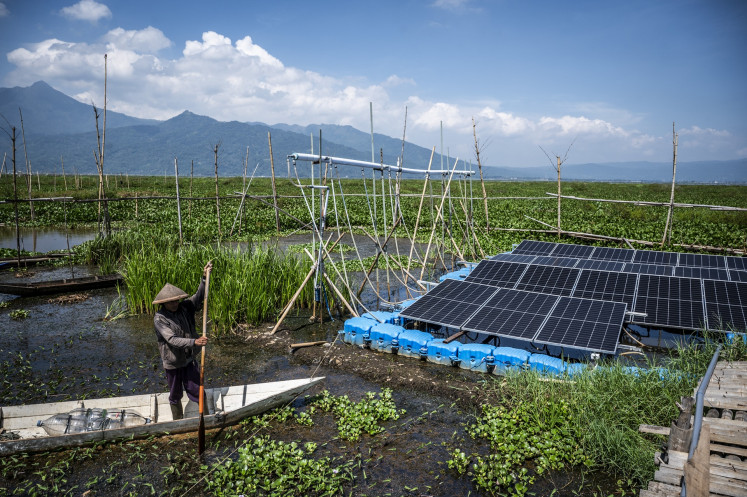Popular Reads
Top Results
Can't find what you're looking for?
View all search resultsPopular Reads
Top Results
Can't find what you're looking for?
View all search resultsTourism players feel sidelined by new ‘inclusive’ law
The Indonesian Tourism Industry Association (GIPI) has criticized the recently passed tourism law for removing the group’s formal recognition as the representative body for businesses in the tourism sector.
Change text size
Gift Premium Articles
to Anyone
T
he Indonesian Tourism Industry Association (GIPI) has criticized the recently passed tourism law for removing the group’s formal recognition as the representative body for businesses in the tourism sector. However, the government and experts view the new law as a shift toward a more flexible, inclusive and community-based approach.
Established in 2012 as mandated by the amended Tourism Law No. 10/2009, GIPI serves as an umbrella organization for businesses and professionals across the tourism industry, ranging from hotels and restaurants to tour operators and other service providers. However, the latest revision of the law, passed on Oct. 2, deletes the article that defines the association’s role.
GIPI chairman Hariyadi Sukamdani expressed disappointment with the new law, saying there had been “no discussions” regarding the removal.
“We have fought hard for tourism growth, but the main industry representative is being scrapped altogether in the new law,” said Hariyadi, who also chairs the Indonesian Hotels and Restaurants Association (PHRI) and previously led the Indonesian Employers Association (Apindo), during a press conference on Oct. 12.
GIPI also voiced concern over the government’s rejection of its proposal to establish an Indonesian Tourism Board similar to those in neighboring countries such as Singapore and Malaysia.
Under the new law, the government retains the Indonesian Tourism Promotion Board (BPPI), which GIPI considers ineffective in boosting the tourism sector due to several factors, including inconsistent establishment at the regional level and budgetary constraints.
The association had further proposed the creation of a tourism public service agency (BLU), funded by international tourism levies, to support sector development without relying heavily on the state budget. This proposal was also omitted from the new law.


















